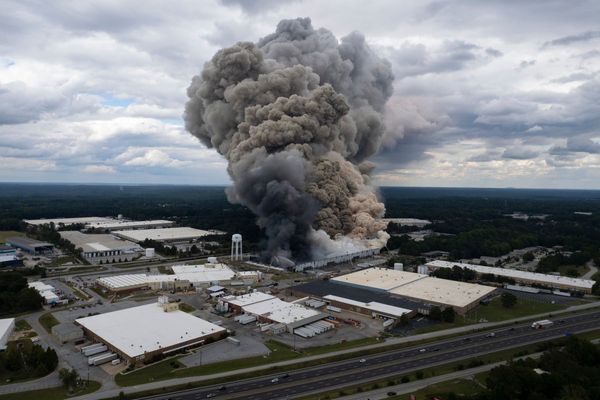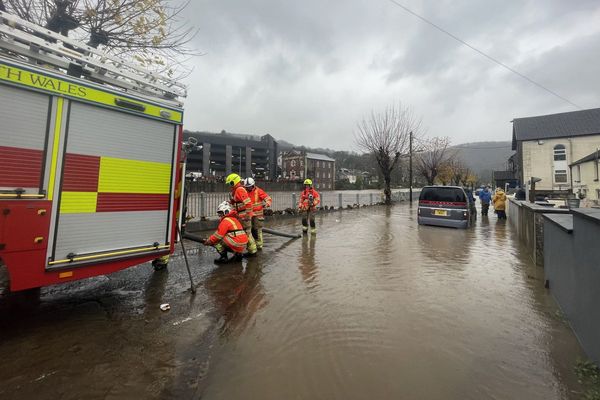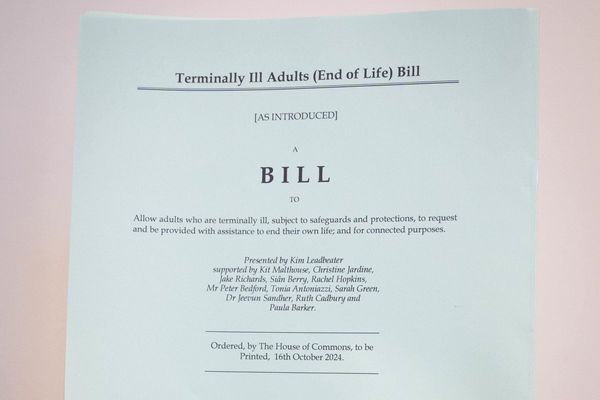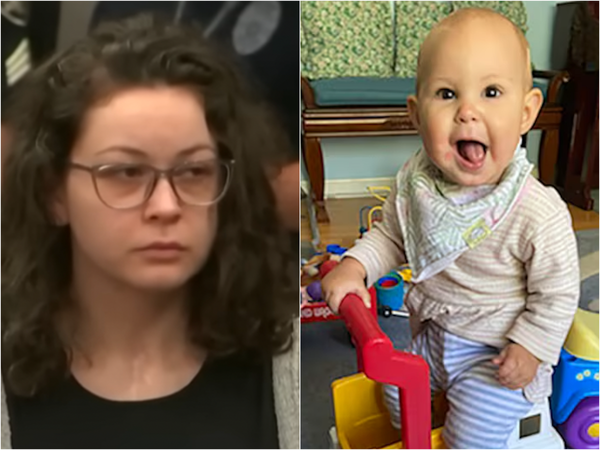
On a wet Tuesday morning on the University of Sydney’s main campus, a group of about 40 students were huddling under a gazebo, trying to agree on a game plan for a May Day march for Palestine.
Elsewhere on the lawn, dozens of tents were being lashed by rain, including some that had collapsed. One was spray painted “Free Gaza”, and others had protesters peeking out of them, eating cup noodles and sipping coffee. One banner hanging from a shelter had the slogan “USYD cut ties with genocide” printed on it. The Bureau of Meteorology’s seven-day forecast predicted a full week of showers ahead.
“We’re here rain, hail or shine,” said Shovan Bhattarai, 25, a history student and campus activist affiliated with Socialist Alternative and Students for Palestine.
Bhattarai and her fellow campers decided to pitch tents on the lawn a week ago, after watching students in the US do the same. University campuses across the US have been occupied for weeks by students protesting Israel’s actions during its war in Gaza. Students at Columbia University in New York were first, setting up their encampment on April 17. Since then, students have followed suit at dozens of other US universities, often met by heavy police tactics and threats of expulsion.
“We want to have a disruptive, very visual, semi-permanent fixture on campus that is very explicitly calling out our university’s ties to weapons companies and demanding that they divest,” Bhattarai told Crikey.
Sydney University’s partnership with Thales Australia and other defence companies have long been a source of discontent among parts of the student body. After the current war in Gaza erupted, following a Hamas attack on Israel last October that killed 1,200 people, left-wing activists at the university have demanded those ties be severed.
Israel’s war in Gaza has killed more than 34,000 Palestinians, about two-thirds of them women and children, according to local health officials cited by the Associated Press. The International Court of Justice is investigating allegations Israel has committed acts of genocide in the war, accusations that Israel denies.
“There are thousands of students on campus who support Palestine who were totally opposed to the fact that our university has all these ties to weapons companies, we want to be a bit of a pole of attraction to try to actually galvanise those students into a very difficult, tangible, loud, angry protest,” Bhattarai said.
Since the Sydney encampment began last Tuesday, several other universities across Australia have seen tent cities pop up on campus. “This movement has spread like wildfire,” Bhattarai said.
There have already been plenty of controversies — a “teach-in” involving school-age children at the Sydney University encampment last Friday led to headlines like The Sydney Morning Herald’s “Pro-Palestine kids’ event accused of ‘emotional child abuse’”.
Zac Morris, vice president of the Australasian Union of Jewish Students NSW, told Guardian Australia the encampment had made Jewish students afraid of attending campus.
“There’s this feeling of having to kind of hide. Things have progressed and are well past the point of what should be acceptable,” he said.
Executive Council of Australian Jewry president Daniel Aghion told the SMH the camps should be dismantled: “We call on the federal education minister, state education ministers and vice chancellors to take immediate action to ensure the safety of all students and staff.”
Bhattarai said the camp was welcoming and that antisemitism would not be tolerated: “Some protesters are Jewish themselves and say that their own struggles are very much linked up to the struggle for a free Palestine”.
Sydney University has so far taken a cautious approach, issuing a public statement last week saying it remains “committed to the right of protesters to assemble peacefully and express their views”.
“Equally, we have zero tolerance for any form of racism, threats to safety, hate speech, intimidation, threatening speech, bullying or unlawful harassment, including antisemitic or anti-Muslim language or behaviour,” the statement added.
Since then, protesters said they’ve been contacted by the university administration with a warning not to disrupt graduation ceremonies.
A Sydney University spokesperson told Crikey graduates had been informed about the encampment and told their graduation ceremonies would proceed as planned.
“At Sydney, we have a long tradition of understanding that peaceful protests and freedom of expression can be important demonstrations of free speech,” the spokesperson said.
“But exercising that expression must not inhibit the freedom of our community to move around campus, attend graduations, go to class. And we need to be a place that appreciates the contest of ideas and welcomes the diversity in our midst.
“We’ve also communicated again with key organisers of the protest to remind them of our expectations of behaviour, and inform them there will be areas around the quadrangle they need to avoid as they are essential to ensure graduation ceremonies can proceed smoothly. We appreciate the respect the protesters [have] shown for core University events to date, including during our recent ANZAC dawn service, and are looking forward to celebrating our proud graduates as they deserve.”







